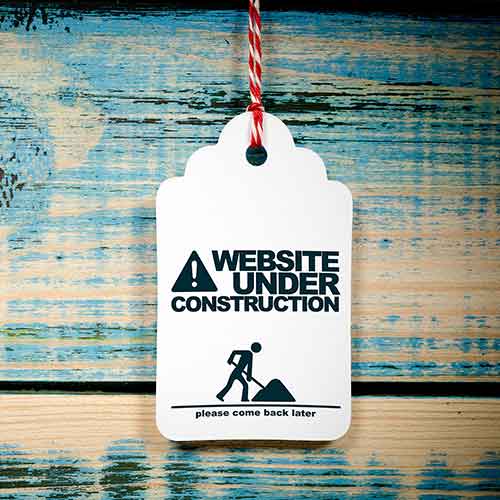Understanding Local SEO
Local SEO refers to the strategy of achieving high rankings for local searches. It aids businesses in appearing in "near me" and "around me" search queries.
It's estimated that half of all Google searches are done with local intent.
According to SEO authorities, such as HubSpot, 50% of consumers who perform local searches make a purchase on the same day.
If a business isn't visible in these local searches or doesn't rank high in Local Search results, they're losing sales to rivals.
Location is a key driver of consumer engagement, even for well-established national brands.
It's estimated that over 80% of customer engagement occurs through local assets such as local listings, directories, and local pages (as reported in Search Engine Land).
What Influences Local SEO?
When enhancing a business’s Local SEO, it’s crucial to observe, review, and optimize the following factors deemed as Local SEO best practices:
1. Refining URL, Title Tags, Meta Descriptions, & Content
- Refining URL title tags, meta descriptions, and content is crucial not only for overall SEO, but also for Local SEO.
- For optimal Local SEO practices, the URL, title tags, headers, meta descriptions, and content should incorporate the locality (area, city, & region) along with the target keyword of the page being optimized.
- Including locality assists search engines, like Google, in accurately indexing with geographical location.
- Links with city, state, or area included in the anchor text (the words actually hyperlinked) aid with "near me" searches, thereby enhancing Local SEO.
2. Local Keyword Research
- Properly conducted keyword research forms the basis of SEO campaigns.
- Concentrate on using target keywords for titles, tags, and content relevant to the locality being optimized for.
- Keep relevant keywords near the start of any title or content, and use related keywords and phrases throughout as suitable.
3. Claim & Optimize Google My Business Profile
As Google is the most popular, recognized, and widely used search engine, it’s vital to utilize all the features Google offers for Local SEO to identify a business online.
Google places significant emphasis and authority on its Google My Business card (formerly Google Places).
It’s crucial to set up and optimize Google My Business to include all relevant data points including:
- business hours,
- phone number,
- directions,
- logo,
- photos,
- staff,
- product & service offerings,
- reviews, etc.
4. Schema Implementation
Schema markup, also known as structured data, provides search engines with detailed information about the:
- business,
- address,
- industry type,
- events,
- products,
- services,
- pricing,
- as well as location-based offers,
- and more.
Since Schema is only used on about a third of all business websites, using Schema can make a business standout in search results and placement; which can boost CTR (click through rate) of qualified, targeted traffic.
5. Consistent Channel Information
One measure Google uses in deriving ranking and placement for businesses in local search results is consistency of data. Therefore, managing a brand’s consistency of assets is crucial in this equation.
- It’s vital to have accurate and consistent NAP data (name, address, phone number) across all websites, directories, and channels.
- Use high-authority online directories, profiles, and citations to improve trust and authority of information for local searches.
- Create local business profiles and channels relevant to industry and target markets; ensure accurate, consistent data across each.
6. Google Posts
Using Google Posts in Google My Business accounts to update consumers about deals, local offerings, and upcoming events can help generate more qualified and relevant traffic.
These posts often appear directly in SERP providing the ability for a business to directly communicate with consumers before they've even arrived at a site.
7. Local Link Building
Just as appropriate link building can help boost overall SEO, participating in relevant & natural local link building can improve Local SEO.
Having a strong profile not only helps one to perform well in local search results, but also improves overall consumer confidence with relevant, useful links, and data.
As with any link building strategy, make sure to follow proper link building practices, and avoid link-farms with irrelevant links.
8. Reviews & Reputation
Google places significant emphasis on first party reviews when it comes to Local SEO.
- Relevant, positive reviews are considered important to help influence buyers, and improve local relativity.
- To improve reviews and reputation, it’s important to actively reach out to consumers and request reviews.
- Consumers often go out of their way to leave negative reviews, so some follow-up and reminders to leave a positive review is often warranted and required.
There are numerous review services useful to facilitate the request of reviews from customers, while easily managing the results.
9. Tracking & Analytics
Tracking analytics is important to review and see what’s working, and what needs improvement with local search results and placements.
Whether using Google Analytics or other marketing analytic technologies, these services often allow the tracking of:
- search volume,
- ranking,
- results placement,
- and geographic location.
These data points help to improve overall efficiency with regards to local search placement, and what can be improved upon.
10. Security
Google places significant emphasis on security. Using SSL Certificates to make a site secure helps improve overall SEO, while boosting Google ranking in local "near me" and "around me" searches.
11. Responsive, Mobile-Friendly
Google prioritizes mobile-friendly websites and mobile content in search results.
- Due to the Mobile-First requirements, Google recommends that mobile-content be equivalent and consistent across all platforms.
- They suggest responsive website development to accommodate consistent data across all user platforms; whether viewed on mobile devices or desktops.
12. Local Market Dependent Content
For brands with numerous localities to market, it's important to build hyper localized content for each locality.
- Make each location page unique and avoid using the same content with "city name" changed for each.
- Use relevant information for each locality that engages local audiences showing differentiation.
Wrapping It Up
The above Local SEO factors significantly contribute to the success of a business reaching their local target audiences for “near me” and “around me” searches.
As search continues to evolve, Local SEO has become a major factor in emerging search technologies like Voice Search.
As the sales of home smart speakers and phone assistants grow, Local SEO continues to play a critical role in Voice Search’s accuracy and success in providing users with relevant results.
Local SEO is something all businesses must continue to review regularly for optimal success and target market reach.













